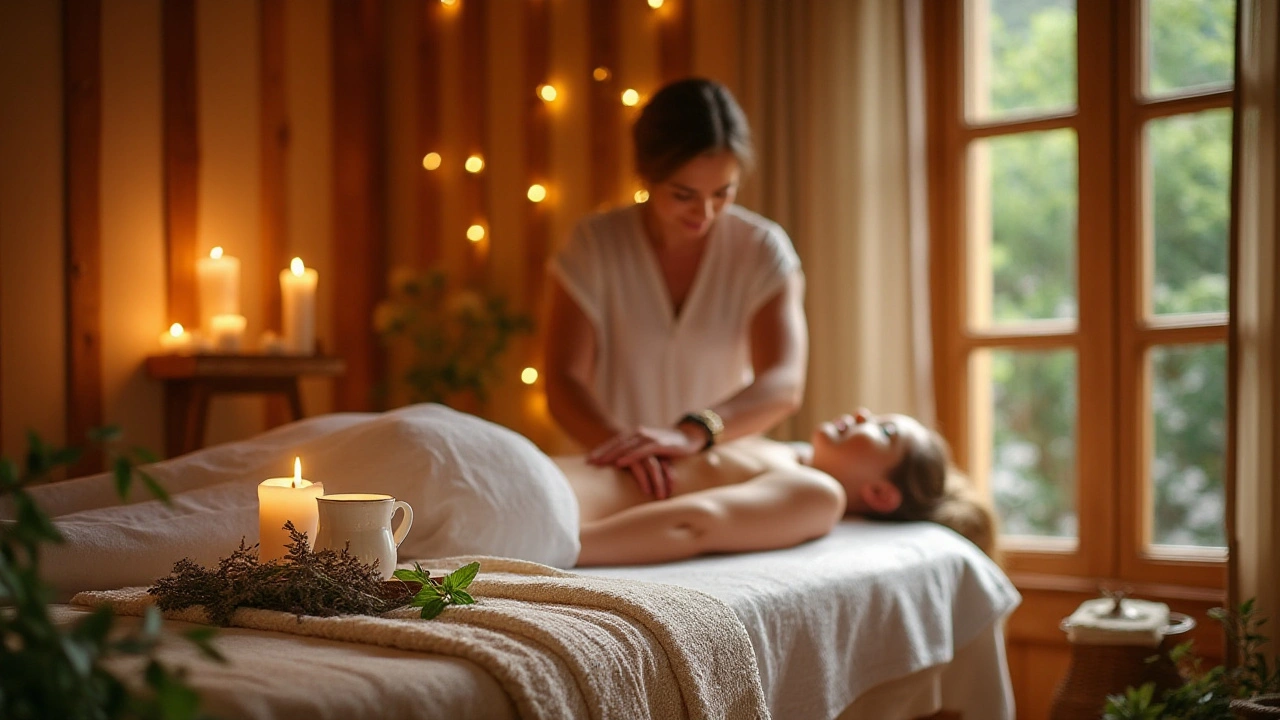Dive into the world of deep tissue massage, where sensuality and healing intertwine to promote swifter recovery from injuries. This intimate practice goes beyond mere physical relief, offering a holistic approach to muscle rejuvenation and well-being. Explore techniques and tips that highlight its powerful benefits, ensuring a pleasurable journey back to health. With the right touch, deep tissue massage can transform your recovery experience into an adventure of relief and delight.
Injury Recovery Made Simple with Massage in London
If you’ve hurt a muscle, twisted a joint, or are dealing with lingering soreness, massage can be a game‑changer. It’s not just a luxury; it’s a proven way to speed up healing, reduce pain, and get you back to your routine faster. Below you’ll find straight‑forward advice on why massage works, which styles to choose, and how to pick the right therapist in the city.
Why Massage Helps Your Body Repair
When a therapist applies pressure, they boost blood flow to the injured area. More blood means more oxygen and nutrients, which are essential for tissue repair. The gentle stretching of muscles also loosens scar tissue, helping you regain full range of motion. Finally, massage triggers the release of endorphins – the body’s natural painkillers – so you feel less ache during recovery.
Best Massage Types for Specific Injuries
Sports massage is perfect for athletes or anyone who does regular, intense activity. It combines deep tissue work with targeted stretching to break down knots and improve flexibility. Deep tissue massage focuses on the deepest layers of muscle and fascia, ideal for chronic tightness or after a sprain. If you enjoy a more holistic approach, Thai massage blends assisted yoga‑like stretches with pressure, which can help release joint tension and improve circulation.
For neck or shoulder injuries, a Swedish massage with lighter strokes can reduce inflammation without aggravating the area. And if you’re dealing with a specific spot, ask for trigger point therapy – the therapist zeroes in on the knot, applying focused pressure until it relaxes.
Don’t forget the basics: a short post‑massage stretch and staying hydrated help lock in the benefits. Most therapists will suggest a few simple moves you can do at home to keep the muscles loose between sessions.
Choosing the Right Therapist in London
London is packed with qualified therapists, but not all specialize in injury recovery. Look for credentials such as a Level 3 Sports Massage qualification or membership in a professional body like the United Kingdom Register of Massage Therapists (UKRMT). Read reviews that mention “post‑injury” or “rehab” to gauge their experience.
When you call, ask these quick questions: What’s your experience with my type of injury? Do you work with physiotherapists or doctors for coordinated care? How many sessions do you usually recommend for someone in my situation? A therapist who can answer confidently is likely to have a solid protocol.
Pricing in London varies. Expect roughly £60‑£90 per hour for a specialist sports massage. Some clinics offer package deals – buying four sessions up front can shave off 10‑15 %.
What to Expect During Your First Session
First, the therapist will ask about your injury history, pain level, and any medical advice you’ve received. They’ll then tailor the pressure – you’ll never be left in excruciating pain. Sessions usually last 45‑60 minutes, with a short consultation at the end to discuss home exercises and when to book the next appointment.
If you feel any sharp pain, speak up right away. A good therapist will adjust the technique immediately. After the session, you might feel relaxed, a little sore (like after a workout), or notice improved mobility – all signs that the tissue is responding.
In short, massage is a practical, evidence‑backed tool for injury recovery. Pick a therapist who knows your specific issue, combine the sessions with simple home stretches, and stay hydrated. Follow these steps and you’ll likely notice less pain, quicker healing, and a smoother return to the activities you love.

